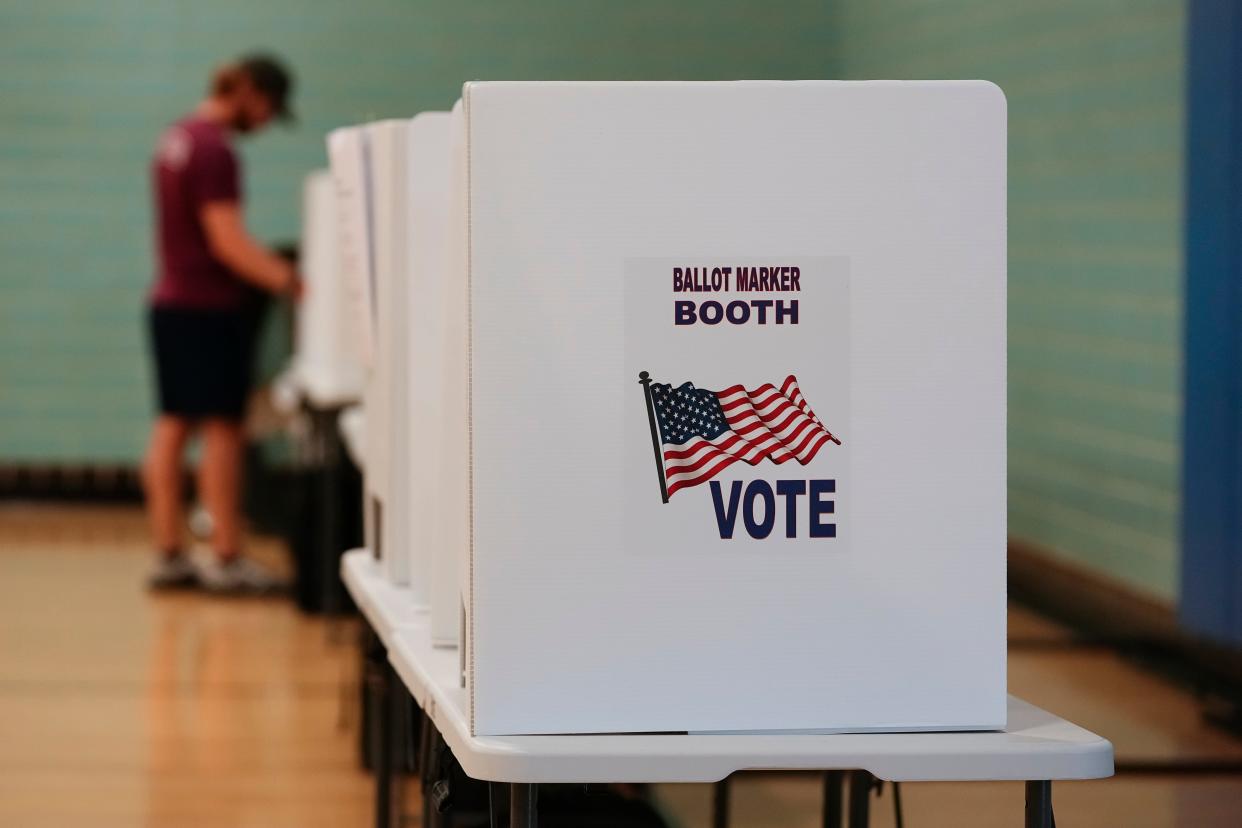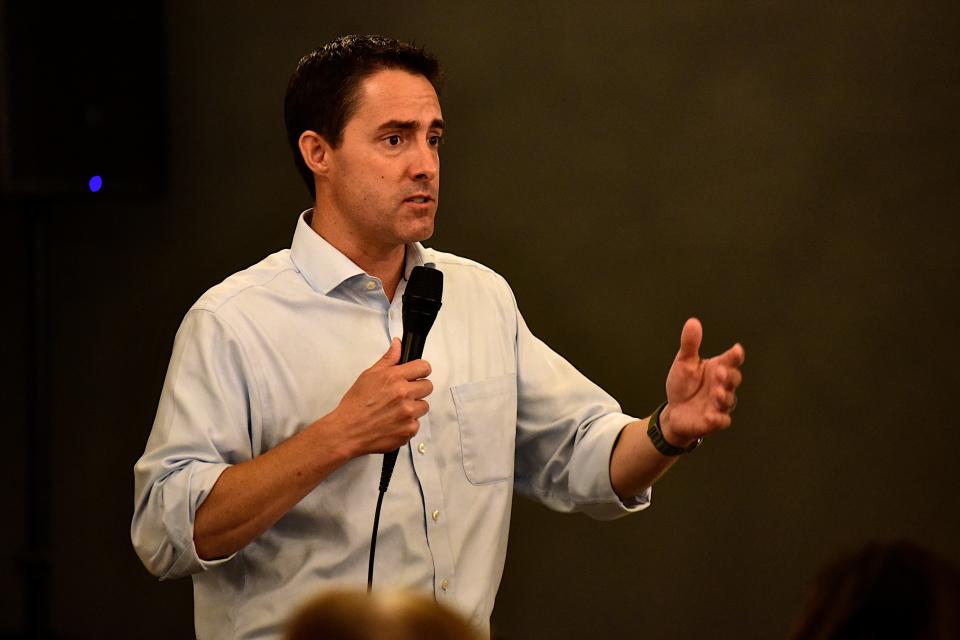After leaving bipartisan election group, Ohio will share voting data with other GOP states

- Oops!Something went wrong.Please try again later.
Ohio will share election data with three other Republican-led states in an effort to prevent voter fraud after leaving a bipartisan national group with the same mission.
Secretary of State Frank LaRose's office announced Thursday that he reached three separate agreements with election leaders in Florida, Virginia and West Virginia. Ohio will exchange information with each state to ensure people aren't voting twice or registered in multiple places.
Voting rights advocates and election officials, including LaRose, have emphasized the importance of maintaining accurate voter rolls to prevent fraud.
"This is a major new development as states look to move beyond the old model of sharing voter data through an unaccountable third-party vendor," said LaRose, who is also running for U.S. Senate in 2024. "Ohio took the lead on this election integrity project, and it’s only one aspect of the work we’re doing to keep our elections honest as we prepare for the next presidential election year."
The agreements came months after LaRose joined other Republican secretaries of state in pulling out of the Election Registration Information Center, known as ERIC. The organization was founded by Republican and Democratic election officials in 2012 to help states maintain accurate voter rolls. As a member state, Ohio would submit voter registration data and driver's license information to help identify voters who died, moved or had duplicate registrations.
Members must also mail registration information to residents who aren't signed up to vote. Ohio first joined ERIC in 2016.
Florida, Virginia and West Virginia also pulled out of ERIC.

Why did Ohio leave ERIC?
The organization faced scrutiny from conservatives who argued it's a liberal effort to register more voters and falsely claimed that it's funded by philanthropist George Soros, a frequent target of GOP ire. (Member states fund ERIC. It got some initial assistance from Pew Charitable Trusts, which received funding for a separate election initiative from Soros' foundation, according to PolitiFact.)
ERIC still maintains support from some Republicans, including Georgia Secretary of State Brad Raffensperger.
"Registering more voters is not a liberal effort," said Nazek Hapasha, policy affairs manager for the League of Women Voters of Ohio. "It’s a democratic effort, and it should be one that’s the highest priority of the secretary of state."
LaRose pushed ERIC's leaders to make several changes, such as loosening requirements for member states to contact unregistered voters. He also took issue with David Becker, a former board member who runs the Center for Election Innovation and Research and often speaks out against false voter fraud claims made by former President Donald Trump and his allies.
The decision to leave was the latest example of LaRose's willingness to appease conservative election skeptics, even as he defends Ohio's voting system.
"You have chosen to double-down on poor strategic decisions, which have only resulted in the transformation of a previously bipartisan organization to one that appears to favor only the interests of one political party," LaRose wrote to ERIC Executive Director Shane Hamlin. "I believe the current actions and inactions of ERIC will effectively set in motion its demise."
How is Ohio's new agreement different?
LaRose's office said these partnerships will serve as a decentralized way for states to combat double voting, without the additional requirements ERIC imposed.
The USA TODAY Network Ohio Bureau requested copies of the agreements, which were not immediately provided. Spokeswoman Mary Cianciolo said they vary based on the state's laws but share the common goal "to bolster election integrity." Ohio and its partner states will be able to review voter rolls, identify double voting, assist voters who need to update their addresses and more.
LaRose's team reached out to all 50 states about the idea in March and expects to reach agreements with three or four more in the near future.
The Ohio Association of Election Officials did not take a position for or against withdrawing from ERIC. Executive director Aaron Ockerman said local boards of elections favor any robust compacts with other states that help keep voter rolls up to date.
But Hapasha is skeptical that any alternative program put forward by LaRose will be as effective or efficient at combating voter fraud.
"Right now, ERIC is the only nationwide organization that does what ERIC does," she said. "There is no replacement for ERIC. I would say ERIC is a member-driven organization and LaRose could have and should have worked with member states to be able to seek the change that he wanted to."
Haley BeMiller is a reporter for the USA TODAY Network Ohio Bureau, which serves the Columbus Dispatch, Cincinnati Enquirer, Akron Beacon Journal and 18 other affiliated news organizations across Ohio.
This article originally appeared on The Columbus Dispatch: Ohio to share voting data with other GOP states after leaving ERIC

